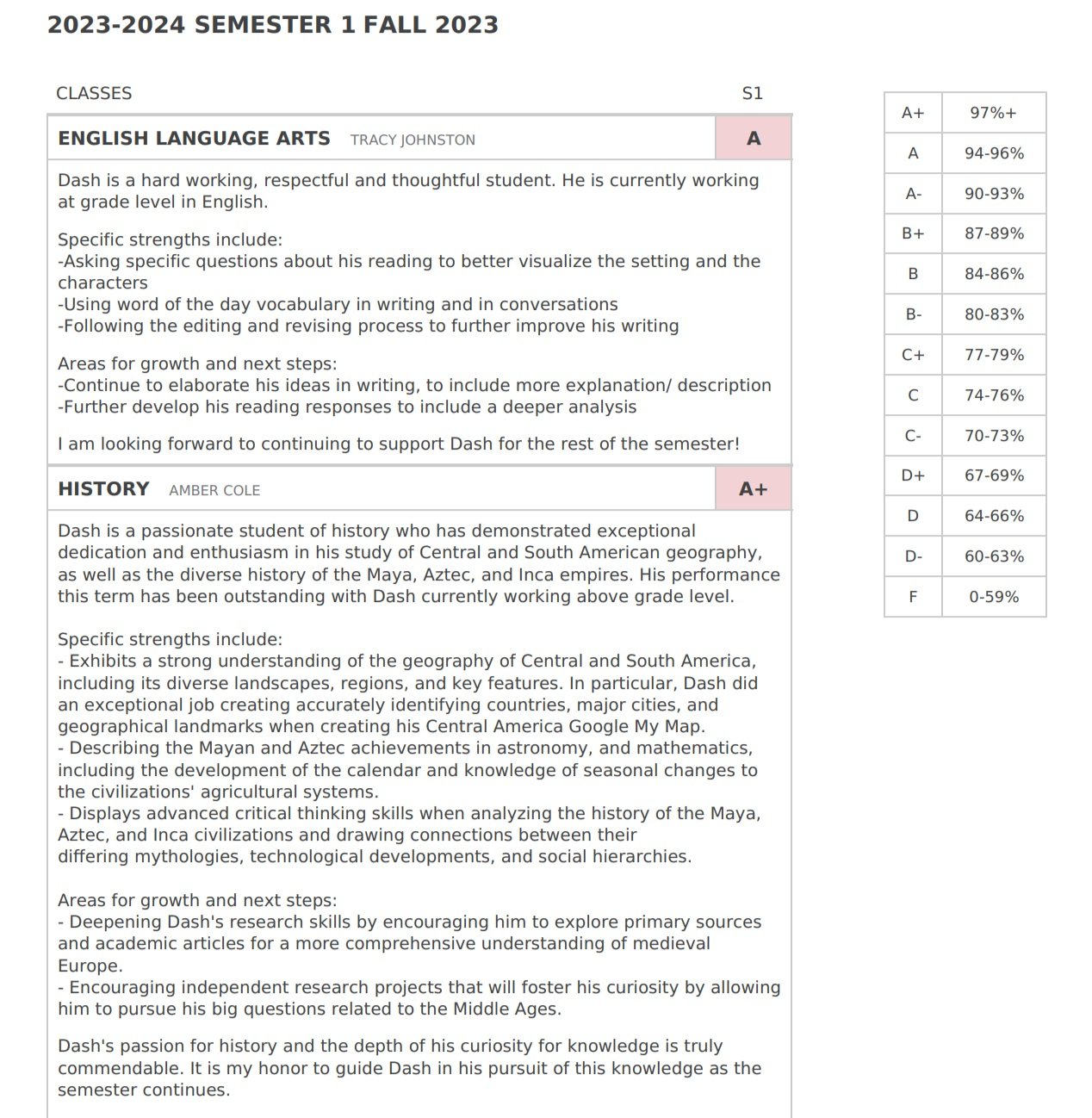Progress Reports & Conferences at PacPrep
PacPrep conferences are offered twice a school year, at the halfway point within each semester. I love hosting these meetings as we’re able to bring educators and parents (and even students!) together. We debrief what has been covered, how the student performed, and where they’re headed. The teacher shares samples of student work, highlighting particular areas their student has grown and ways their interests are staying at the forefront of learning. Due to the nature of our 1:1 learning environment, teachers are naturally able to provide a wealth of information about their students, sharing how their student has advocated for themselves, made a thoughtful connection, and demonstrated kindness using specific examples.
Check out our frequently asked questions below:
1. What’s included on your progress reports?
For the progress report in each class, our teachers share:
characteristics about the child themselves (Seeing the child before the student is essential to catering to their needs.)
3-4 particular areas of strength with evidence of each
2-3 areas for growth and/or next steps
overview of what they’re looking forward to working with the student
2. What makes conferences at PacPrep unique?
Since our leadership team is monitoring course goals and respective development from the very beginning of PacPrep classes, we are able to use conferences to connect on unique learning opportunities. For example, maybe a sixth grader began the year feeling apprehensive about writing thesis statements. During conferences, we use that time to specifically debrief how writing these statements is going, using the student’s work to capture their progress. The teacher then provides a snapshot of where learning will go from here, often designing new goals based on having accomplished the previous one.
3. Why are conferences helpful?
Our families receive weekly update emails detailing the content that has been taught and how their child is engaging in learning. Furthermore, for students who have more than one teacher, those teams get together to strategize lesson planning, visiting family goals and next steps as a top priority. So, by the time I share progress reports and begin scheduling conferences, I often receive responses detailing that families feel very up-to-date. Our conferences can then begin at a deeper level–highlighting respective goals and trajectory, and less about behavior and engagement. Teachers love the opportunity to brag on their students –sharing successes and victories and inviting feedback to fine-tune their next steps.


